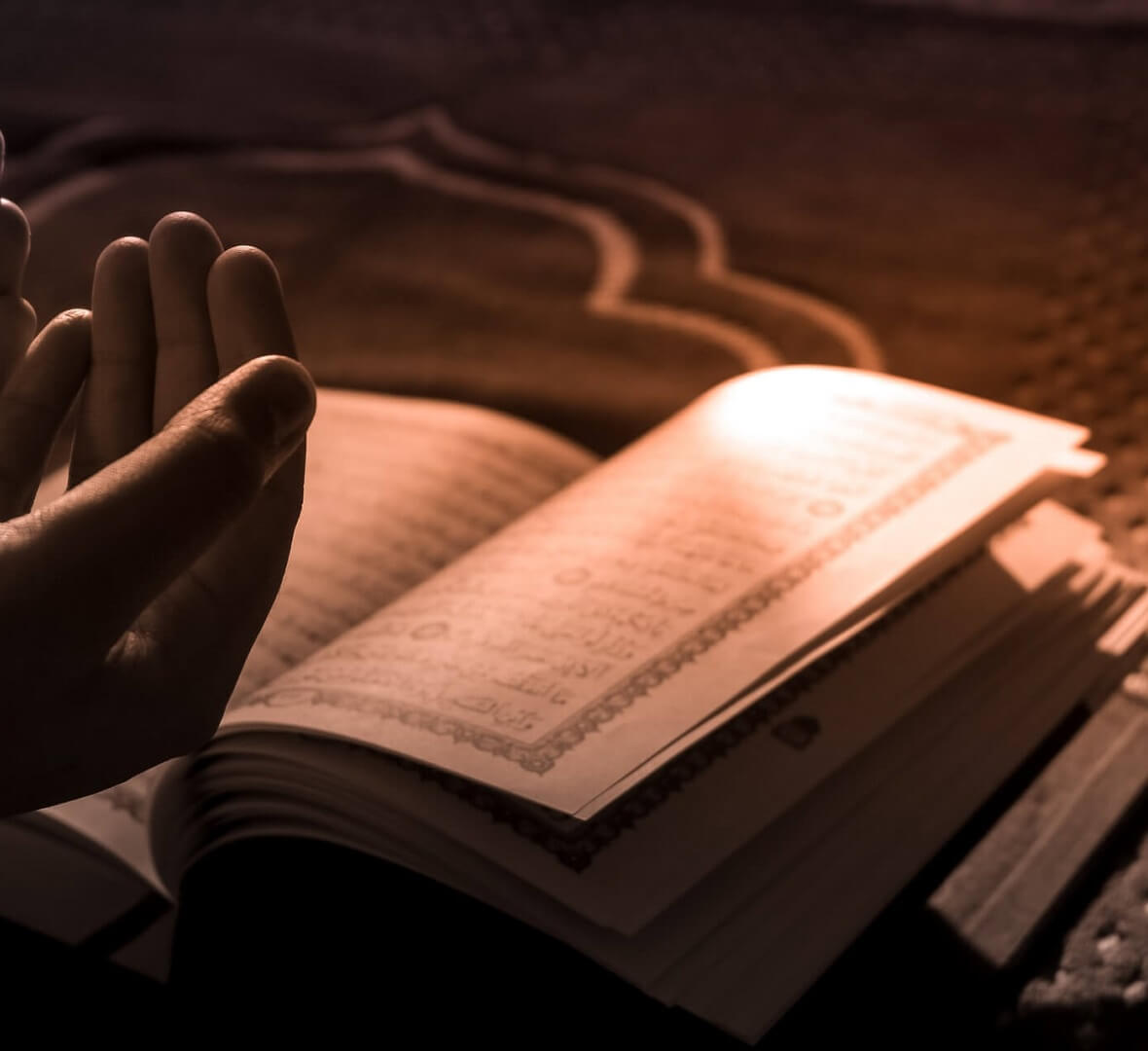In Islam, parents have significant responsibilities and duties towards their children. These duties are based on the principles outlined in the Quran and the teachings of the Prophet Muhammad (peace be upon him). In this article, we will go through the responsibilities of parents to their children in Islam.
Duty of Parents Before Birth:
One of the many main reasons for marriage in Islam besides attaining spiritual perfection is to lay the foundation of families and to have offspring. To attain this perfection Allah commands Muslims to choose a life partner wisely.
A hadith in this relationship is as follows:
“A woman may be married for four reasons: for her property, for her rank, for her beauty, and for her religion (and character), so marry the one who is best in the religion and character and prosper.” – (Bukhari)
This applies to both men and women. So the first thing is to select a good partner.
Next, when a woman gets pregnant she must take care of her spiritual and physical health to ensure this makes the baby’s health and Peart good and pure. Therefore it’s advisable for a pregnant woman to have healthy food, to have the right amount of rest, and to be active throughout her pregnancy.
This is the right of her child that she does every possible thing for a healthy baby. Also, she must be very particular about her Salah and must do zikr, and recite the Quran every single day to ensure the peace of her and the baby’s soul.
It is also recommended that she engage in at least one activity that teaches or uses her skill. It can be as simple as reading a book or learning a language or a skill. This makes the baby intelligent.
Duties Of Parents Right After Birth:
1. Right to Good Name:
Every child must be given a good name by his father.
Samurah Bin Jundub (RA) reported that Allah’s Messenger ﷺ said,
“Every child is mortgaged with its Aqeeqah, which is to be slaughtered for it on its seventh day. On that day, it should also be named, and its head should be shaved.”
Recorded by Ahmad, Abu Dawud, and others. Verified to be authentic by al-Albani (Sahih ul-Jami’ no. 4541 and Irwa ul-Ghalil no. 1165).
2. Right to Love and Respect:
Children are gifts of Allah. We must take care of them with love. We must show kindness to them and respect them as individual human beings. This will ensure in raising children who are emphatic, kind, compassionate, and caring towards other beings. They will be responsible and helpful humans who add value to society rather than being a threat to it
Examples of the Prophet’s manner of dealing with kids:
Prophet Muhammad ﷺ said,
“Honour your children and give them the best manners” – Ibn Majah
Abu Huraira r.a. reported that al-Aqra’ bin Habis saw Allah’s Messenger ﷺ kissing Al-Hassan (the Prophet’s grandson). He (al-Aqra’) said: “I have ten children, but I have never kissed any of them”.
Whereupon Allah’s Messenger ﷺ replied:
إِنَّهُ مَنْ لاَ يَرْحَمْ لاَ يُرْحَمْ
He who does not show mercy (towards his children), no mercy would be shown to him.” – (Sahih Muslim)
Narrated by Anas (R.A) himself:
خَدَمْتُ النَّبِيَّ صلى الله عليه وسلم عَشْرَ سِنِينَ، فَمَا قَالَ لِي أُفٍّ. وَلاَ لِمَ صَنَعْتَ وَلاَ أَلاَّ صَنَعْتَ
“I served the Prophet ﷺ for ten years, and he never said to me, ‘Uff’ (a minor harsh word denoting impatience) and never blamed me by saying, “Why did you do so or why didn’t you do so?”
– (Sahih Al-Bukhari)
Aishah (R.A), the mother of the believers said,
ما رأيتُ أحدًا كانَ أشبَه سمتًا وَهديًا ودلًّا برسولِ اللَّهِ صلَّ اللَّهُ عليهِ وسلَّمَ من فاطمةَ كانت إذا دخلت عليهِ قامَ إليها فأخذَ بيدِها وقبَّلَها وأجلسَها في مجلسِه وَكانَ إذا دخلَ عليها قامت فأخذت بيدِه فقبَّلتهُ وأجلستهُ في مجلسِها
“I have not seen anyone who resembled the Prophet ﷺ in terms of conduct, way, and manners, more than Fatimah”. (Aishah continued,) “When the Prophet saw her coming, he would stand up for her, took her hand, kissed her, and brought her to sit in his place. When the Prophet ﷺ visited her, she would stand up for him, take his hand, kiss him, and bring him to sit in her place.”
– (Sunan At-Tirmizi)
The Prophet ﷺ commanded fairness in the treatment of one’s children.
أنَّ أباهُ أتى بِهِ النَّبيَّ صلَّى اللَّهُ علَيهِ وسلَّمَ يشهَدُ علَى نحلٍ نحلَهُ إيَّاهُ فقالَ : أَكُلَّ ولدِكَ نحَلتَ مثلَ ما نحلتَهُ قالَ : لا قالَ : فلا أشهَدُ على شَيءٍ أليسَ يَسرُّكَ أن يَكونوا إليكَ في البِرِّ سَواءً قالَ : بلَى قالَ : فلا إذًا
It was narrated from An-Nu’man that his father brought him to the Prophet to bear witness to a present that he gave to him. He said: “Have you given all your children a present like that which you have given to him?” He said: “No.” He said: “I will not bear witness to anything. Will it not please you if they were all to treat you with equal respect?” He said: “Of course.” He said: “Then no (I will not do it).” – (Sunan An-Nasa’i)
3. Teach Them Good Manners
Teach your children the oneness of Allah by giving them examples from nature constantly. Make their belief in Allah strong by teaching them that Allah lives and cares for them. Teach them to depend on Allah by helping them make dua to Allah regularly in everyday matters. Fix the time of zikr so that their relationship with Allah gets more and more strong every day. Make them aware of matters of Deen by telling them stories from the Quran d teaching them Islamic rulings on everyday things.
Children are a huge responsibility which can either become a blessing or a curse for us. If we are able to raise our children as good Muslims they will take us to Jannah and become a source of happiness and relief in Aqirah for us.
4. Treat Them Equally & With Justice
The Prophet ﷺ said:
“Your children have the right of receiving equal treatment, as you have the right that they should honor you.” (Abu Dawoud).
“Do justice among your sons (kids),” and repeated it thrice.” – (Muslim)
“Whoever is put to trial by having to raise daughters and he treats them generously (with benevolence) then these daughters will act as a shield for him from Hellfire.” – (Al-Bukhari, Hadith-5569).
“The just will be with Allah on thrones of light …those who are just in their rulings and are fair with their families and those of whom they are in charge.” – (Muslim)
5. Spending on Children
Children have a right to the good life. So a parent must take care that he provides them a decent life with halal earnings.
Muslim (995) narrated from Abu Hurayrah in a marfoo’ report: “A dinar which you spend for the sake of Allaah, a dinar which you spend on freeing a slave, a dinar which you give in charity to a poor person and a dinar which you spend on your family – the greatest of these in reward is that which you spend on your family.”
In al-Bukhaari (55) and Muslim (1002), it is narrated from Abu Sa’eed al-Khudri (may Allaah be pleased with him) that the Prophet ﷺ said:
“When a man spends on his family, hoping for reward, that is (counted as) an act of charity for him.”
6. Make Dua for Them
This last one must not be taken for granted. Keep making dua for your children as this can ensure their safety and success in both worlds.
The Messenger of Allah ﷺ said:
ثَلَاثُ دَعَوَاتٍ مُسْتَجَابَاتٌ لَا شَكَّ فِيهِنَّ دَعْوَةُ الْمَظْلُومِ وَدَعْوَةُ الْمُسَافِرِ وَدَعْوَةُ الْوَالِدِ عَلَى وَلَدِهِ
“There are three supplications that will undoubtedly be answered: the supplication of an oppressed person, the supplication of the traveler; and the supplication of a parent over his child.” – (Sunan At-Tirmizi)
Related: How to teach a child to pray in Islam
Few Duas From Quran and Sunnah:
➔ For pious children:
Surah Al-Furqan, (25:74)
“Our Lord, grant us from among our wives and offspring comfort to our eyes and make us an example for the righteous.”
Check the full Dua here: Dua for Pious Children
Surah Ibrahim Verse 40:
“My Lord, make me an establisher of prayer, and [many] from my descendants. Our Lord, and accept my supplication.”
➔ For protection:
أُعِيذُكُمَا بِكَلِمَاتِ اللَّهِ التَّامَّةِ مِنْ كُلِّ شَيْطَانٍ وَهَامَّةٍ، وَمِنْ كُلِّ عَيْنٍ لاَمَّةٍ
“I seek protection for you in the Perfect Words of Allah from every devil and every beast, and from every envious blameworthy eye. – (Hisn al-Muslim 146)
رَبَّنَا وَاجْعَلْنَا مُسْلِمَيْنِ لَكَ وَمِنْ ذُرِّيَّتِنَا أُمَّةً مُسْلِمَةً لَكَ وَأَرِنَا مَنَاسِكَنَا وَتُبْ عَلَيْنَا ۖ إِنَّكَ أَنْتَ التَّوَّابُ الرَّحِيمُ
“Our Lord! Make us both (fully) submit to You and from our descendants a nation that will submit to you. Show us our rituals, and accept our repentance. You are truly the Acceptor of Repentance, Most Merciful.” – (Surah Al-Baqarah, 2:128)
Also consider reading the Dua for evil eye protection.
➔ For difficult situations and times:
اللَّهُمَّ لَا سَهْلَ إلاَّ مَا جَعَلْتَهُ سَهْلاً، وأنْتَ تَجْعَلُ الحَزْنَ إذَا شِئْتَ سَهْلا
“Oh Allah! Nothing is easy except what you have made easy. If you wish, you can make the difficult easy.” – (Sahih Ibn Hibban)
In conclusion, the duties of parents towards their children in Islam are encompassing physical, emotional, spiritual, and moral aspects of their upbringing. By fulfilling these duties with love, compassion, and devotion to Allah’s teachings, parents can hope to raise children who are responsible and compassionate. Additionally, parents should be actively involved in helping their children navigate the challenges of the modern world while adhering to Islamic principles.


